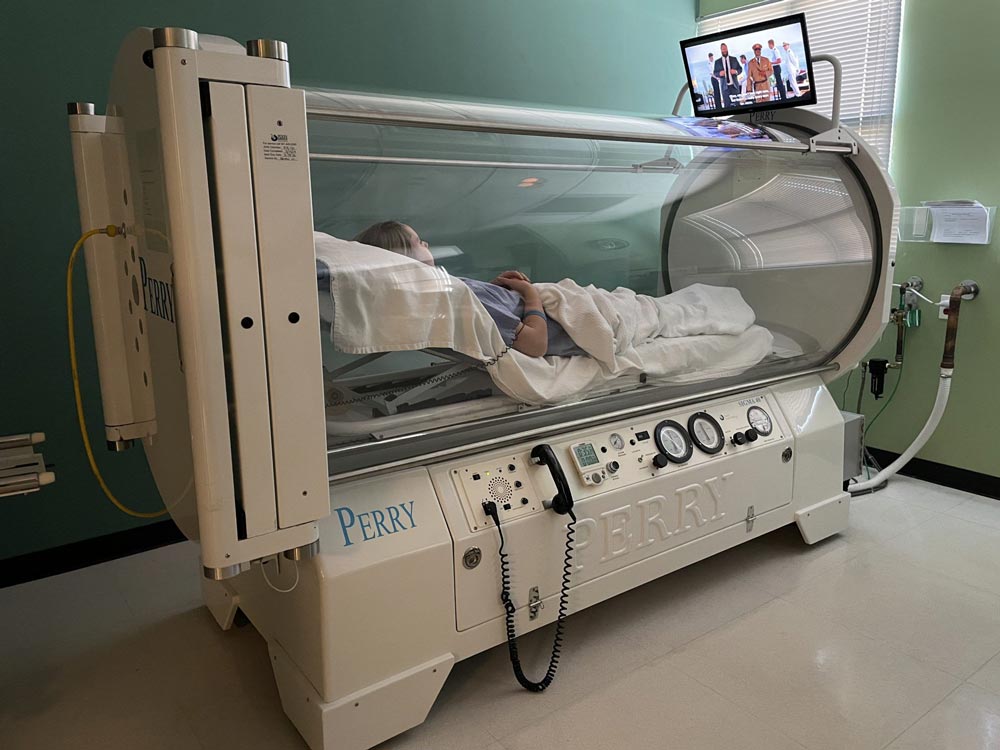Multiple Sclerosis (MS) is a chronic autoimmune disease that affects the central nervous system (CNS), which includes the brain and spinal cord. In MS, the body’s immune system mistakenly attacks the protective myelin sheath that covers nerve fibers, leading to demyelination and causing communication issues between the brain and the rest of the body.
Hyperbaric Oxygen Therapy (HBOT) for multiple sclerosis is a cutting-edge medical treatment that involves breathing pure oxygen in a pressurized chamber. MS oxygen therapy works by delivering high concentrations of oxygen to the body’s tissues, including the brain and spinal cord, which are affected by the demyelination process in multiple sclerosis.
The increased oxygen levels promote angiogenesis, reduce inflammation, and enhance the body’s natural healing processes.
Additionally, HBOT stimulates the release of growth factors and stem cells, which can aid in repairing damaged nerve tissues. By providing a more oxygen-rich environment, HBOT aims to improve neurological function, reduce symptoms, and enhance overall well-being for individuals living with multiple sclerosis.
A study was conducted where 703 MS patients showed that 300 HBO treatments (about one treatment a fortnight over 10-13 years) appreciably arrested progression of MS. It showed that more than 500 treatments, (approximately once per week), was most effective. Learn more about the study below.
HBOT offers a range of potential benefits for individuals living with Multiple Sclerosis (MS), providing new hope and possibilities in managing the condition. The top benefits of HBOT for MS include:
Our state-of-the-art medical clinics offer cutting-edge Hyperbaric Oxygen Therapy (HBOT) as an innovative treatment option for individuals living with multiple sclerosis.
Under the expert guidance of our experienced physicians and certified technicians, patients experience the benefits of HBOT in our spacious acrylic monoplace chambers, the Perry Sigma 40. If you or a loved one are seeking effective relief and improved quality of life, explore how HBOT can make a difference.
There are several types of multiple sclerosis, including:
Symptoms of multiple sclerosis can vary widely and may include fatigue, difficulty walking, numbness or tingling, muscle weakness, vision problems, dizziness, pain, and cognitive issues. The symptoms and their severity can fluctuate, making MS a complex and unpredictable condition.

When it comes to HBOT therapy, trust the experienced certified-technicians and multi-disciplinary physicians at Baromedical Associates to provide you with the most advanced treatment—in your own private space.